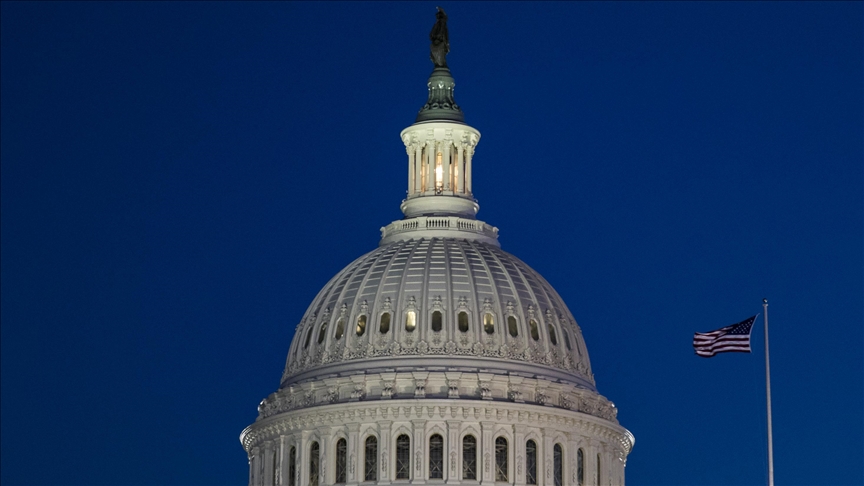US appeals court debating Trump’s use of emergency powers for tariffs
Government cites national security law as critics warn of unchecked executive authority

ISTANBUL
A US federal appeals court heard oral arguments Thursday in a legal challenge to President Donald Trump’s use of emergency powers to impose sweeping tariffs on foreign goods.
Lawyers representing the government defended the tariffs under the International Emergency Economic Powers Act (IEEPA), saying the law grants the president broad flexibility in national emergencies.
“Congress has long given the president broad discretion to deal with complex and evolving national emergencies,” said Brett Shumate, emphasizing that IEEPA is a core national security tool.
He argued that the phrase “regulate importation” includes imposing tariffs. “Tariffs regulate importation by controlling imports,” the counsel noted, adding that “for centuries, countries have regulated importations by imposing a condition on the good and its access to the United States.”
Officials pointed to the 1975 Yoshida ruling, which upheld tariff powers under similar statutory language. “Congress was legislating against the backdrop of Yoshida in 1977 when it incorporated the exact same language,” said Shumate.
He argued that since IEEPA permits a total import ban, it must also allow a lesser measure such as a tariff. “When Congress delegated the even more extraordinary power to block imports altogether, it would have also authorized the executive to impose conditions like tariffs,” said Shumate.
- Tariffs represent overreach
Opponents said the administration’s actions exceeded constitutional boundaries by bypassing Congress’s exclusive authority on trade and taxation.
“That is a breathtaking claim to power that no president has asserted in 200 years,” said Neal Katyall, warning that the executive could exploit emergency declarations indefinitely. “You just heard an argument that the president can do whatever he wants ... so long as he declares an emergency.”
He contended that tariffs are a form of taxation and require clear congressional approval. “Every single time Congress has given the president tariff authority, they’ve done so expressly with words" like duties or tariffs, said Katyall.
The complainants also turned the government’s reliance on Yoshida against them, arguing that the 1975 case upheld a limited tariff measure with a ceiling level. “If you want to live by the sword of Yoshida, you’re going to die by the sword of Yoshida,” according to Katyall.
The US Court of Appeals for the Federal Circuit is examining whether Trump lawfully used emergency powers to impose broad, higher tariffs on most US trading partners.
A lower court blocked the move in May, finding Trump overstepped authority under the International Emergency Economic Powers Act. But the appeals court paused that decision, allowing tariffs to remain active during proceedings.
The case comes as Trump's global tariffs are set to take effect Friday.








